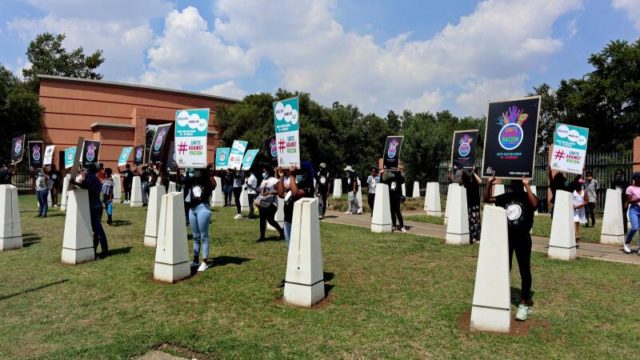As the 61st anniversary of the Sharpeville Massacre is marked on March 21, 2021, there has been a call for continued compassion, and a continued fight injustices and police brutality.
Human Rights Day has its origins in the events that unfolded at Sharpeville and Langa on March 21, 1960, when apartheid security forces cracked down on peaceful marches.
AS THE 61st anniversary of the Sharpeville Massacre is marked on March 21, 2021, there has been a call for compassion, and a continued fight against injustice and police brutality.
Human Rights Month 2021 is commemorated under the theme “The Year of Charlotte Maxeke: Promoting Human Rights in the Age of Covid-19”.
The theme pays tribute to the 150th anniversary of the birth of liberation struggle heroine and human rights campaigner Charlotte Maxeke.
Human Rights Day has its origins in the events that unfolded at Sharpeville and at Langa in the Western Cape on March 21, 1960, when apartheid security forces cracked down on peaceful marches that opposed pass laws that had been imposed on black South Africans.
On that day, an anti-pass march at the Sharpeville police station came to a brutal end with the killing of 69 protesters. Later that day, in Langa, police baton-charged and fired teargas at the gathered protesters, shooting three and injuring several others.
The Sharpeville Massacre, as the event has become known, signalled the start of armed resistance in South Africa and prompted worldwide condemnation of South Africa’s apartheid policies.
President Cyril Ramaphosa will today deliver a national message during the virtual commemoration of Human Rights Day.
Meanwhile, the Right2Know Campaign has highlighted police brutality. This following the death of Mthokozisi Ntumba, who was shot and killed by the police on his way from the doctor when police were targeting protesting Wits University students.
“Six decades after the Sharpeville massacre, the discourse around police brutality has still not taken a centre stage in South Africa. The outrage is short-lived, we soon find ways of blaming the protesters, we criminalise protesters, innocent citizens continue to die at the hands of police and no one is held accountable,” the organisation said.
“Police continue to kill with impunity just like they did in Sharpville 61 years ago.”
The organisation said that according to statistics published by the Independent Police Investigative Directorate, 32 people were killed and 25 people were allegedly tortured by the police during the first 40 days of the Covid-19 lockdown in South Africa.
They added that they believe the government is using the current regulations to suppress dissent.
“The right to protest is pivotal for the proper functioning of a democracy and the ability for ordinary people to demand accountability and justice.
“The government is manipulating the Covid-19 pandemic to find reasons to shut down protests and make it even harder for activists to organise and participate in protests lawfully.
The Right2Know Campaign added: “As citizens, it is our duty and our responsibility to defend the right to freedom of assembly. Also, there’s an urgent need to demilitarise policing in South Africa. Incidents of police brutality are escalating across the country.
“Protesters are being criminalised, shot at with stun grenades and rubber bullets and we cannot afford to remain silent as more protesters with legitimate grievances are at risk of severe injury and even losing their lives at the hands of the police as we have recently witnessed with Wits protests,” they said.
“We also note and condemn the racialised and discriminatory nature of policing protests in South Africa.
“It is mainly black protesters that are treated with disdain by police in this country, while white privileged protesters enjoy the right to protest with no disruption. This unfair, racialised and discriminatory treatment must end.”








